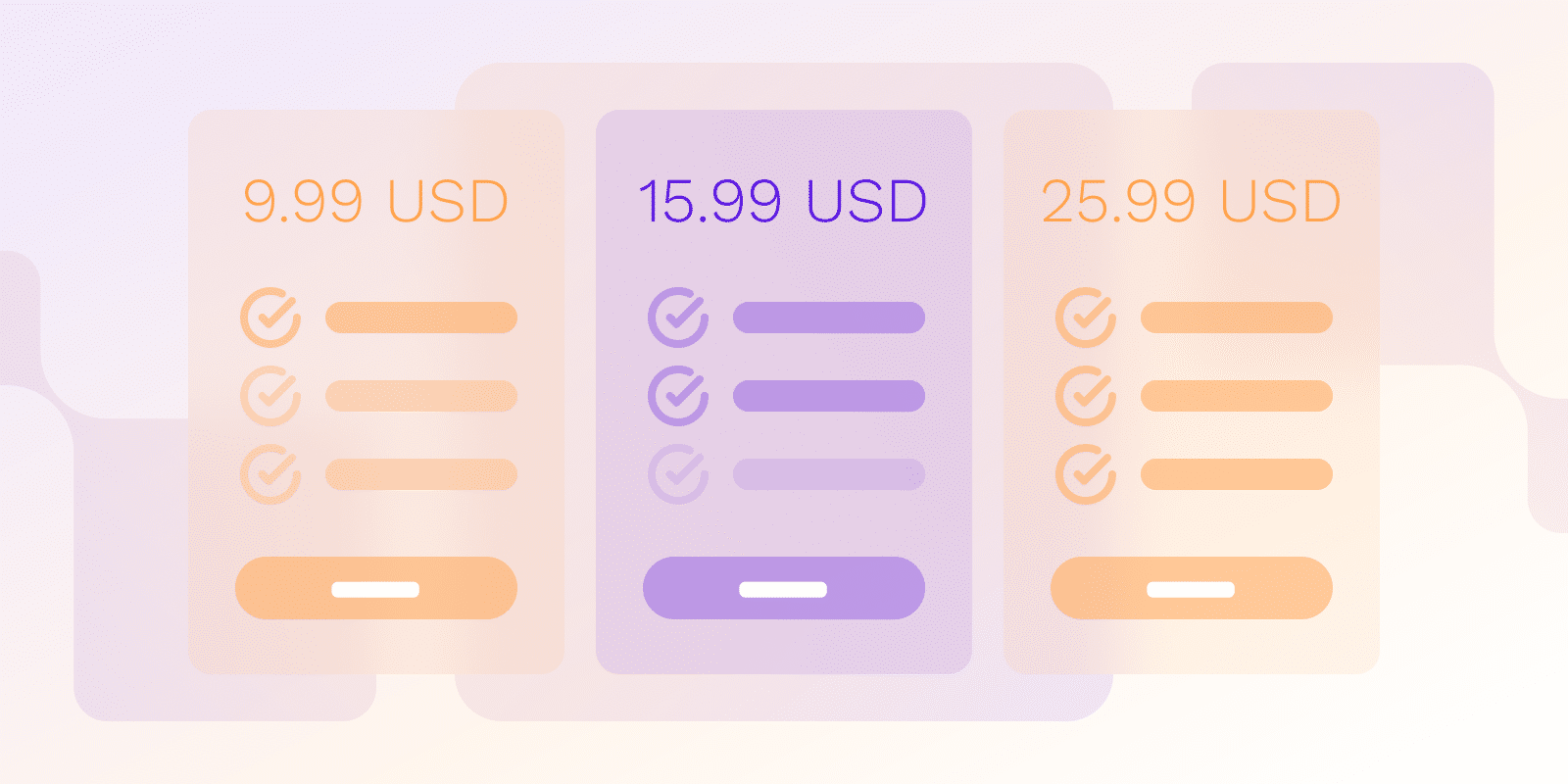Pricing Strategies
What is Saas Tiered Pricing?
Published: July 29, 2024
Last updated: February 3, 2025

What is tiered pricing?
Tiered pricing is a SaaS monetization model that provides users with different subscription plans, each with a different set of features and price points.
Through this pricing strategy, SaaS businesses can target different customer segments with diverse budgets and requirements.
Consider combining tiered pricing with other models like usage-based or per-user monetization to align your product with the target market.
What are the advantages and disadvantages of tiered pricing for SaaS companies?
Here are the pros and cons of tiered pricing for SaaS brands:
Advantages
- Wider appeal: With tiered monetization, SaaS brands can target different user profiles with distinct needs and purchasing power.
- Upselling potential: This SaaS pricing strategy offers users the option to switch to other paid plans.
- Scalability: All SaaS businesses can use tiered pricing.
Disadvantages
- Complexity: To effectively use this method, it’s important to review features and create balanced and distinct pricing tiers.
- Additional costs: One plan differentiator is the support provided, which may include supplementary expenses.
| Aspect | Advantages | Disadvantages |
|---|---|---|
| Market & Customer Impact | ||
| Market Coverage | Targets multiple customer segments with different needs and budgets | Risk of pricing cannibalization between tiers |
| Customer Growth | Facilitates natural upselling opportunities between tiers | Customers might settle for lower tiers that partially meet needs |
| Implementation & Management | ||
| Setup Complexity | Highly scalable for businesses of all sizes | Requires careful feature differentiation between tiers |
| Operational Impact | Clear structure for feature organization | Additional costs for varied support levels across tiers |
| Business Strategy | ||
| Revenue Model | Flexible combination with other pricing strategies | Complex pricing structure requires regular review and adjustment |
| Market Position | Enhanced competitive positioning through varied offerings | Requires continuous market analysis to maintain tier relevance |
Pricing cannibalization can happen. When pricing tiers are not effectively designed, users might go for a lower-priced tier that almost meets their requirements instead of a more expensive one that provides a better feature match.
When is tiered pricing a suitable strategy for a SaaS business?
Tiered pricing is an option for a SaaS business in any growth stage. However, it can have optimal outcomes when:
- Your target market is made of different customer segments.
- Your product features can be clearly classified into different groups.
- Your SaaS solution can have different pricing plans handling different requirements.
How do you determine the appropriate tiers and pricing levels for tiered pricing?
Consider the following aspect when establishing the right SaaS pricing tiers for your business:
- Have a comprehensive understanding of your customers: Get acquainted with your users’ budget limitations, feature needs, and usage patterns.
- Conduct a thorough competitor analysis: Assess pricing structure, value points, and feature sets.
- Calculate your product expenses: When building tiers, it’s important to consider development and maintenance costs, as well as profit expectations.
- Keep things simple: When starting, it’s advisable to stick to 3-4 plans and continue adding as you grow based on user feedback.
The key to determining the correct pricing tiers for your SaaS depends heavily on understanding your customers and market.
How can tiered pricing be combined with other pricing models, such as value-based pricing?
Tiered pricing can be combined with different other SaaS strategies. Here are some examples:
By combining the freemium strategy with tiers, you can educate your users about your product and make them understand which paid plan they require. Additionally, this strategy matches user groups with pricing tiers.
Another option is to adjust plans with value-based principles. To do this, each tier should clearly reflect the value each customer segment receives.
Tiered pricing can be combined with both usage and per-user-based monetization, where plans gradually increase based on usage levels or the number of active users.
Conclusion
With tiered pricing, SaaS businesses are able to target different customer groups. This way, they can influence revenue streams and feature segmentation.